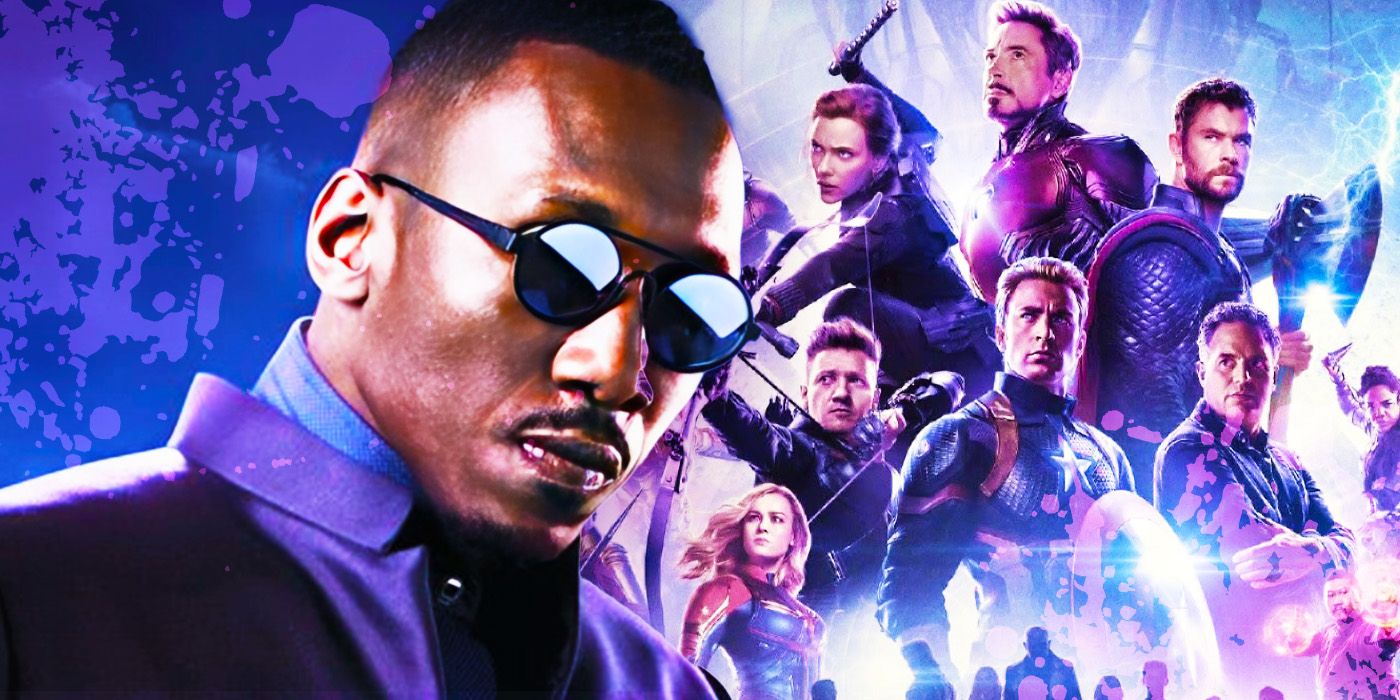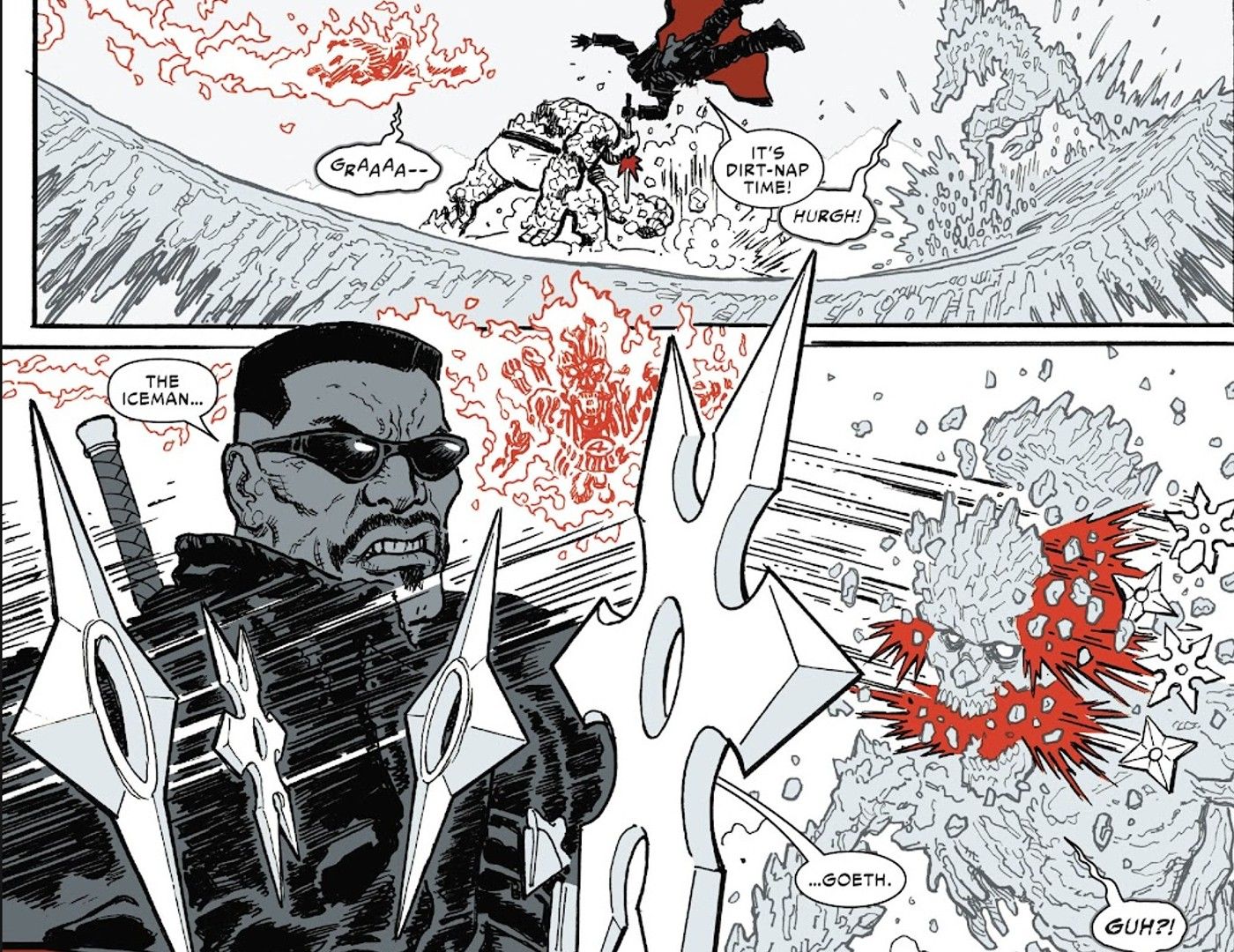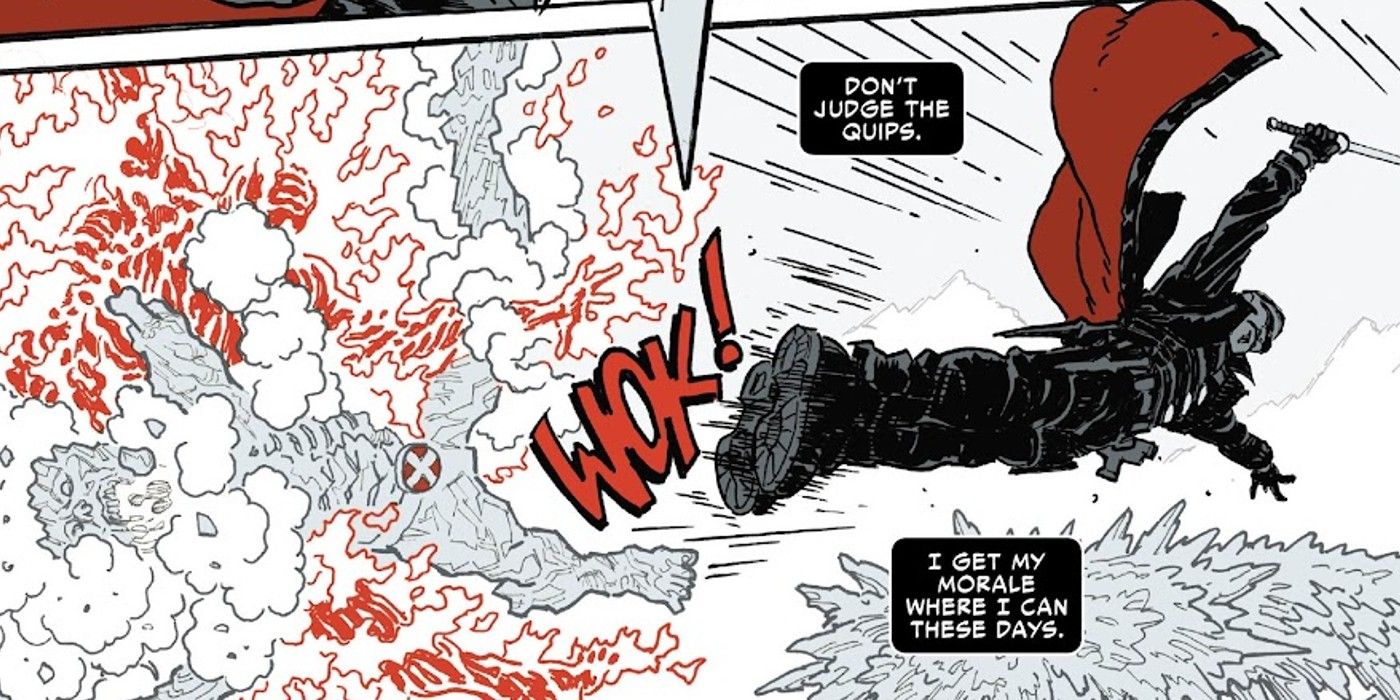Summary
- Blade regrets not being more active and involved in the superhero community, especially as a member of the Avengers.
- He has a tendency to sabotage his relationships and prefers to work alone, but now realizes the importance of support from other heroes.
- Blade’s monster complex and desire for solitude could hinder his growth and prevent him from forming meaningful connections with others.
Warning: Spoilers for Marvel Zombies: Black, White, and Blood #4!His biggest ascent up the Marvel ladder came with his Avengers induction, but Blade has one huge regret that he’s finally acknowledging. Despite joining the Avengers a few years ago, Blade has hardly had a presence on the team. But then again, Blade doesn’t have the best track record with teams in general, seeing as he deliberately self-sabotages his way into doing more solo work than teamwork.
It’s only now, as of the Marvel Zombies: Black, White, and Blood #4 story “Strange-Ass Bedfellows” by Steve Skroce, Brian Reber, and VC’s Clayton Cowles, that Blade is starting to regret not being a more active Avenger. In fact, he regrets not being a bigger part of the hero community in general. Understandably so, his regret comes at the end of the world when all of the heroes are either dead or undead.
The more that Blade pontificates to himself in an inner-monologue (even uncharacteristically using quips the Avengers would make), the more he realizes how important support from other heroes is, once it’s too late.
Blade Wishes He Was an Avenger After The Avengers Are Dead
It makes sense for Blade to suddenly regret never truly being a part of the superhero community. Even now, as an Avenger, he hardly ever partakes in major team missions. The last time he was prominently featured in an Avengers story was in last summer’s Avengers Beyond issue, and even then, it was just for one issue where he shows how a certain vampire trope makes him a better fighter. Even in a comic centered around the Avengers, Blade’s best moment comes as a solo operator.
He expresses in Blade: First Bite by Bryan Hill, Mack Chater, Dan Brown, VC’s Cory Petit, Annie Cheng, Tim Smith 3, Michelle Marchese, Wil Moss, and C.B. Cebulski, how he actively runs away not just from super-teams, but from found families when he feels himself getting too close. He insists that he works better alone, but his friend Yumi-San counters that as someone who views himself as a monster, he thinks he deserves loneliness and leaves whenever he finds a moment of happiness. Now, he’s faced with actual monsters who tried to be his friends in their past lives. He shunned them then, and he regrets it now.
Blade Needs to Get Over His Monster Complex Before It’s Too Late
It’s too late for Blade to recognize the error of his ways in this universe, but not for the Blade of Marvel’s main canon. The Daywalker is slowly warming up to the idea of accepting a found family in Bryan Edward Hill’s Blade, where he’s seen fighting side by side with his arms dealer and a new sidekick. However, after being defeated by the Adana, he pushes away his allies and is back to being alone, as if his monster complex kicks in at the first sign of trouble.
The aforementioned Blade: First Bite is canon to the current Blade series, so this monster complex feels intentional to acknowledge, from a creative standpoint, as a running theme in this series. It’s a character trait that Blade needs to start working toward recovering from, or else a future where he regrets it is inevitable. The biggest step Blade can take in getting over his urge to be alone and shun his teammates would be to become a bigger, active part of the Avengers moving forward, doing his part in the hero community.
Marvel Zombies: Black, White, and Blood
#4
is on sale now from Marvel Comics.
This story originally appeared on Screenrant



